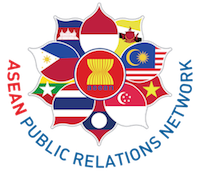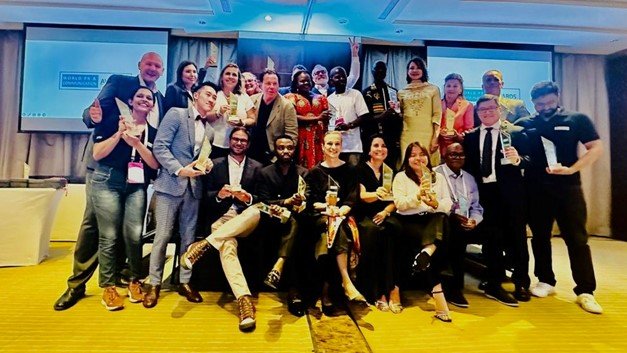Feature Article by Ron F. Jabal: The pandemic years have brought about several realizations for reputation managers, communicators, marketers, and PR professionals. We became more creative and responsive to the demands of a highly restrictive environment. Most importantly, we survived.
Armed with new learnings, we face 2023 with a lot of hope as we face new realities, ready to build new core competencies. For my first column for the new year, I decided to write about what I think will define the practice of PR, marketing, and reputation management this year and the years ahead. While the list is not exhaustive, this, I hope, brings to fore some of the trends and possibilities on how we practice the profession we dearly love.
Co-creation is the new public relations
Gone are the days when PR is simply a one-way street – we develop stories and hope media carries them. While seeding remains a currency, public relations is evolving into a “collab” work – where information is packaged and repackaged in collaboration with appropriate personalities. Content becomes more authentic, original, and engaging when a brand works with macro, micro, and nano influencers.
Thus, more and more PR professionals are investing in content creators – giving them some free time and supporting them with resources to produce content that are intended to yield a favorable return to the brands they work with. It is not unusual these days to bring a credible creator or two early on and have them participate in brainstorming sessions to plot communication campaigns.
A recent US study shows that influencer marketing spend is projected to grow 23.4 percent and 15.9 percent year-on-year in 2023 and 2024. Additionally, 80 percent of marketers found influencer marketing effective or very effective, and 71 percent say it produces better leads than other forms of PR and marketing.
As social networks continue to lord over media consumption, although unpredictable at times (just see what’s happening to Twitter), reputation managers are better off investing in personalities who can bring their message to their base and potential consumers. One thing to remember though – influence relations is not a one-off tick-a-box activity. Cultivating the relationship with content creators is just as vital as it ever was with traditional journalists. Thus, it is not far-fetched to see influencer relations as the newer form of public relations.
Short-form video becomes more vital
We are also observing that short-form video is becoming an increasingly key component of a PR strategy. Given the changing appetite of newer consumers (Gen Zs and younger), visual story telling with a hefty dose of personal touches via shorter videos in TikTok/Instagram Reels/YouTube Short is becoming a staple in communication and marketing campaigns.
A Hootsuite study shows that 95 percent of kids ages 13 to 16 consume YouTube. The same study reveals that GenZs and millennials prefer short-form videos. Both millennials and GenZs indicate a preference for video under one-minute-long, so PRs need to get clever about tight storytelling. Therefore, communication and marketing teams need to invest in more capable multimedia technologies – including re-skilling workshops – to their current arsenal. Tech-savviness should be a primary consideration in hiring new employees and contractors.
This phenomenon brings to fore the importance of simplified brand messaging. As attention spans shorten, lengthy copy just doesn’t work anymore. Consumers want to read short and punchy brand stories – but not at the expense of value. Plus, shorter brand messages easily translate to social media campaigns than the lengthy ones – carrying them across different multiple platforms to reach target markets. As they say, the new PR environment requires a few sentences, so get your point across. No extra fluff!
However, make no mistake: despite demand for shorter messaging, creative writing skills remain to be extremely important. After all, the foundation of PR remains to be the written word. Whether producing brand journalism, a good old fashioned press release, a presentation pitch or even just writing an email, PR professionals need to be word wizards.
An organization with a heart
One of the more positive results of the pandemic that hounded everyone is the heightened demand for purpose. And it is, I believe, a permanent welcome change – with consumers and stakeholders demanding corporations to show what and who do they stand for. It is no longer enough to issue press statements about “our deep sense of gratitude” or “you are in our thoughts and prayers” – even change social media avatars to an image that is supposed to convey particular position or stand. People are incredibly insistent and vigilant in pushing organizations to take concrete actions on socially relevant causes. They expect brands to “walk the talk”, ethical, transparent and to go beyond “PR speak”.
Thus, authenticity becomes a demandable value. It shapes and will continue to shape communal expectations and PR professionals should take full cognizance. Because of the pandemic, consumers became more discerning. They had three years of evaluating and re-evaluating what is important to them. They want brands that value their time and resources. They want to engage with brands that speak and identify with their truths. So they are less forgiving and PR and marketing professionals should be prepared. Authenticity at every turn should be front and center. The key is to focus on mission and value-based story telling. People want to support brands that align with their values.
Virtual fatigue is real!
After more than 30 months of virtual communication – meetings in our sweat pants and undergarments (just the lower parts, excuse me) – people want to give up the conveniences and ready to embrace the “old school” way of connecting and reconnecting. While we became adept to virtual hygiene and Zoom etiquettes, including the plethora of formal and not so formal backgrounds, virtual fatigue is real! So we are seeing the resurgence of in-person events! (Thank God!). Now that the world is starting to open up from the very punishing mobility restriction, the return of live, in-person events will roar through 2023 (hopefully the virus does not return with a vengeance)
While there is still a few who will insist on a hybrid set up and continuously hark back on the benefits of online events – being more convenient, budget-friendly, and commute-free – more brands are expected to insist on face-to-face activations. I recommend for PRs and marketers to work with their clients to slowly re-incorporate in person events in their brand activation plans. Bearing in mind that not all consumers are still ready to fully embrace public events, communicators need to carefully work on a middle ground between seemingly competing interests of safety and brand goals. So, one can start with smaller events before a fuller scale. At this point, our task as a PR advisor will be tested.
The emergence of Web 3.0
While it is still in its nascent stage, Web 3.0 is fast becoming a platform, a channel or, rather, the universe for the future. And PR professionals need to educate themselves about it as it is the “future now” – one that will enable direct interactions between brands and their consumers.
Web 3.0 and the metaverse are expected to bring huge opportunity for brands experimentation not just in awareness, engagement, but also customer acquisition. This new direct-to-consumer universe where gamification and immersive experiences are staples – is the next battle ground for brands that want to win more hearts and minds. Thus, PR and marketing professionals need to understand how the metaverse, which affords the convergence of virtual, augmented, and physical realities, can impact brands. Now is to time to learn and prepare. This is the future environment where we will operate.
Indeed, while the pandemic years have helped us re-focused our priorities, 2023 and succeeding years should be spent building new core competencies around trends and phenomena that will define how we manage reputation brands moving forward.
*Ron F. Jabal, APR is the chairman and CEO of PAGEONE Group (www.pageonegroup.ph) and the founder and president of the Reputation Management Association of the Philippines (www.rmap.org.ph).
Source: https://www.philstar.com/business/2023/01/06/2235569/post-pandemic-pr






